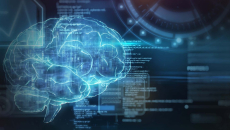Artificial Intelligence
The success the health system has had with its real-time analytics monitoring platform, RAMP, is the focus of an artificial intelligence-themed session at HIMSS25 in March.
Computer vision and sensor integration, evolution in virtual specialty care and other innovations are transcending the hype cycle and showing results, says one telehealth leader.
Advanced approaches will improve health systems' bottom lines while enabling a "more patient-centered and provider-friendly healthcare ecosystem," says one consultant who specializes in data management.
Lawmakers recommend establishing and investing in federal AI resources that foster collaboration among agencies and sectoral regulation, which includes two key findings and five recommendations for healthcare.
The hospital, primarily based on virtual care, will be built by an Australian company.
One CEO offers a closer look into the various technologies at work, including RTLS and artificial intelligence, and he offers some stats on smart room implementations.
SPONSORED
Mind the gaps: The healthcare industry is embracing AI, but needs to keep patient care at the center
Healthcare organizations are embracing modern digital tools and emerging technologies like AI to reimagine how they interact with patients, connect with communities and advance lifesaving missions.
Vijayashree Natarajan, SVP and head of technology at Omega Healthcare, predicts these three areas of health IT will be key next year – and explains why.
In one HIMSS25 session, three speakers from Froedtert & MCW will discuss how ML models can forecast future hospital capacity needs by analyzing large datasets, including historical patient admissions, discharge trends and much more.
HHS' Office of the Assistant Secretary for Technology Policy, along with the Office of the Chief Artificial Intelligence Officer, has compiled a list of healthcare use cases as required by executive orders of both the Biden and Trump administrations.









